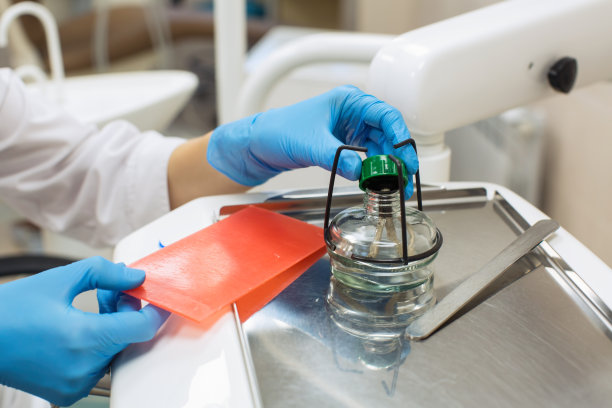Summary: Extracting a tooth may seem daunting, but it plays a crucial role in overall dental health and future oral care needs. This article discusses the importance of tooth extraction from multiple perspectives, including preventing further dental complications, improving the alignment of teeth, facilitating better hygiene, and enhancing overall oral health. Each aspect highlights how timely extraction can contribute to a healthier mouth and influence future dental interventions. Understanding the significance of this procedure can empower individuals to make informed decisions regarding their dental health.
1. Preventing Further Dental Complications

Tooth extraction is often necessitated by severe decay, infection, or damage. If left untreated, these dental issues can lead to more severe problems, including abscesses, gum disease, and tooth loss. Removing an affected tooth can eliminate the source of infection and prevent the spread of bacteria to surrounding teeth and gums. This proactive step can save patients from the pain and discomfort associated with advanced dental issues.
Moreover, delaying tooth extraction can increase the risk of more complicated treatment options in the future. For example, dental procedures like root canals might become less viable as decay progresses. The longer one waits to extract a problematic tooth, the more extensive the damage can become, leading to higher treatment costs and prolonged recovery times.
Hence, extracting a problematic tooth promptly is essential to maintain the integrity of adjacent teeth and preserve overall oral health. Addressing these dental issues preemptively ensures that patients will face fewer complications as they age, which contributes significantly to long-term dental wellness.
2. Improving Alignment and Bite Function
Often, orthodontic concerns, such as overcrowding or misalignment, can necessitate tooth extraction. In many cases, removing one or more teeth can create adequate space for the rest of the teeth to align correctly. Proper alignment is crucial for effective chewing, speaking, and maintaining a balanced bite.
Increased pressure from overcrowded teeth can lead to ongoing discomfort and even pain. By extracting teeth that contribute to overcrowding, patients often experience improved bite function and enhanced overall oral comfort. This realignment not only makes a dental routine more pleasant but also aids in preventing further complications, such as excessive wear on the enamel from misaligned teeth.
The benefits of improved alignment extend beyond function; a well-aligned smile can significantly enhance ones confidence and self-esteem. Therefore, understanding the connection between tooth extraction and improved alignment is crucial for individuals considering orthodontic treatment.
3. Facilitating Better Oral Hygiene Practices
Maintaining proper oral hygiene can be a challenge, especially when teeth are crowded or misaligned. Overlapping teeth can create hidden spaces where plaque and food particles collect, making consistent cleaning difficult. Tooth extraction can alleviate these hygiene challenges, allowing individuals to maintain cleaner mouths.
When problematic teeth are removed, patients typically find it more manageable to keep their gums and remaining teeth healthy. Enhanced oral hygiene can lead to reduced risks of cavities, gum diseases, and other significant health complications. Consequently, making a commitment to regular dental check-ups and proper home care is more feasible post-extraction.
With improved access for brushing and flossing, patients can achieve better dental health in the long run. Thus, extracting teeth as needed contributes to establishing a routine that promotes hygiene and prevents future complications.
4. Enhancing Overall Oral Health and Quality of Life
Overall oral health is intricately linked to general health and well-being. Issues stemming from dental problems can contribute to systemic health issues, such as cardiovascular disease and diabetes. By extracting unhealthy teeth, one can significantly improve both oral and overall health, contributing to a better quality of life.
The reduction of chronic pain and discomfort associated with problematic teeth leads to improved daily functioning. Individuals can eat better and feel more confident in social interactions, which can positively impact mental well-being. The psychological relief that comes from addressing dental issues can be life-changing.
Furthermore, a healthy mouth is vital for digestion and nutrition, making tooth extraction essential for maintaining overall health. By prioritizing dental issues and taking appropriate intervention steps, individuals can experience improvements in both oral health and overall life satisfaction.
Summary:
In conclusion, tooth extraction plays a vital role in preventing further dental complications, improving alignment, facilitating better oral hygiene, and enhancing overall health. Making informed decisions about dental care, including the necessity of extraction, empowers individuals to achieve better oral health outcomes.
This article is compiled by Vickong Dental and the content is for reference only
Vickong Dental
Vickong Dental is a large medical group established in Hong Kong in 2008 by professors from well-known medical universities in Guangdong and Hong Kong, as well as medical doctors from key national '985' universities (including Master's supervisors and senior professors). The chain of branches brings together expert dentists with PhDs and Master's degrees from Hong Kong and Mainland China, committed to providing high-quality dental treatment.
"Vickong Dental Practices the University Motto of 'Healing and Serving Society,' with a Stable Operation for Sixteen Years. It Has Been honored with Hong Kong Enterprise Leaders's Choice,' and is a Global Trusted Implant Center for the Nobel Implant System. Recommended by Hong Kong Metro Broadcast and Guangdong Television, it Serves Customers from Over Thirty Countries and Regions, Gaining the Trust and Favor of Citizens from the Guangdong-Hong Kong-Macau Greater Bay Area and Surrounding Cities.

Thousands of customers' unanimous praise
The most recognized and highly recommended dental service by customers in the Guangdong-Hong Kong-Macau Greater Bay Area
We Ensure You Receive Detailed Care and Attention Here
Hong Kong standards, Shenzhen prices, Your Trusted English-speaking dentists

Vickong Dental Medical-Grade Instrument Disinfection Process
Vickong Dental Medical-Grade Instrument Disinfection Process

Vickong Dental Chain: A Warm and Comfortable Environment for Treatment






Appointment Hours

Q&A
Why choose Vickong Dental?
Vickong Dental practices the university motto 「Medicine to Benefit Society」, with each branch bringing together highly qualified dentists with doctoral and master’s degrees from Hong Kong and the Mainland, and has maintained seventeen years of steady operation。Recipient of 「2024 Hong Kong Enterprise Leaders Brand」, 「2025 Hong Kong Enterprise Leaders Brand」, a Nobel Biocare Global Trusted Implant Center, and a brand recommended by Metro Radio Hong Kong and Guangdong TV。
To date, we have served customers from more than thirty countries and regions,earning exceptionally high word-of-mouth recognition and trusted recommendations from residents across the Guangdong-Hong Kong-Macao Greater Bay Area and surrounding cities
We have eight major branches in Zhuhai、Shenzhen,and a consultation and service assurance center in Hong Kong,so you can book a free consultation at any time for any questions,which is very reassuring.
If I do not accept the quotation after the CT scan, will I be charged??
No! As long as the actual treatment has not started, you will not be charged any fees.
Will there be any additional charges during the treatment process?
No, there won’t be any additional charges. Before treatment begins, we will clearly explain the treatment plan and its corresponding fees. Only after the patient agrees and signs the consent form will we proceed with the dental service.
Can I pay in Hong Kong dollars?
Yes. Vickong Dental accepts payment in Hong Kong dollars. The amount will be converted based on the exchange rate of the day, and the applicable rate will be clearly communicated to you in advance.
Can I reschedule my appointment at any time?
Yes. Please contact us via **WeChat** or **WhatsApp** as early as possible, providing your original appointment time and details, along with your preferred new date and time slot for rescheduling.













